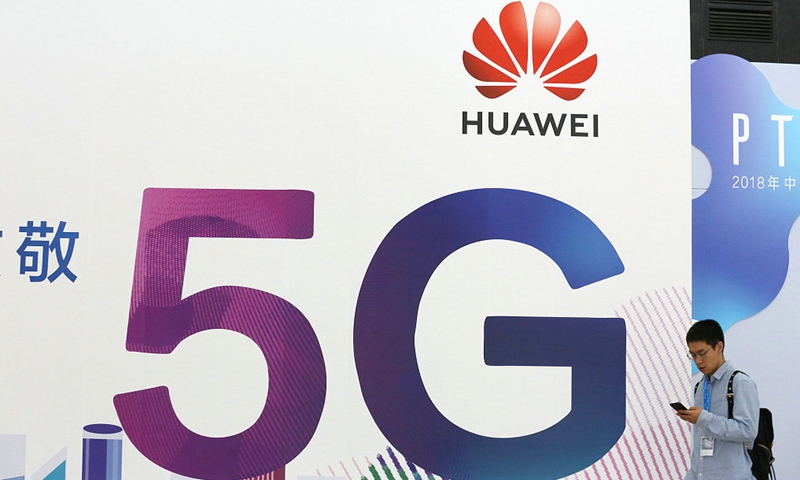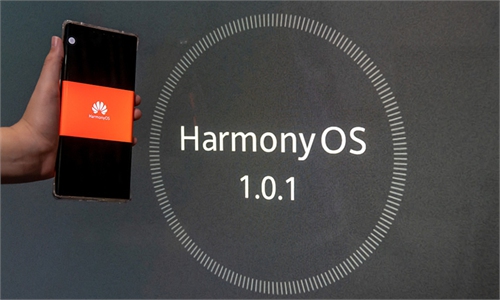
Huawei 5G Photo: VCG
From the launch of its self-developed Harmony operating system (OS) to being a provider of information and communications technology (ICT) solutions, Huawei is putting more effort into strengthening its software ability and shifting away from being a hardware manufacturer to shake off the negative effects of the US chip ban.
The efforts, with the rapid development of China's 5G sector, are paying off -- and they could help Huawei expand quickly at home and abroad, as the Chinese technology company will be largely immune from further US assaults, analysts said.
"As an ICT solutions provider, Huawei has so far cooperated with mines, photovoltaic enterprises and finance firms, as well as ports and pig farms. It is transforming itself from being a hardware supplier to a software and services supplier," Ma Jihua, a veteran industry analyst, told the Global Times on Wednesday.
Profits from being a services vendor could be huge and possibly even better than being a hardware producer, Ma said.
Last year, as part of a plan to deal with the US' technology crackdown, Huawei reportedly kicked off a project called Nanniwan, named after a revolutionary site in Northwest China's Shaanxi Province, which will focus on gadgets that shun US technologies.
A large-scale production campaign was launched in Nanniwan during the War of Resistance against Japanese Aggression, aiming to tackle economic hardships, achieve self-sufficiency in production.
In February this year, Ren Zhengfei, Huawei's founder and CEO, confirmed the existence of the project, explaining that this term actually refers to production and self-rescue.
"For example, we have made great breakthroughs in the fields of coal, steel, music, smart screens, PCs, and tablets. So, we can survive without relying on mobile phones."
Analysts said that after almost a year of development and progress, the ICT sector is the area where Huawei has made the most breakthroughs so far.
For instance, investment in the vehicle sector has already become profitable. Other than providing smart solutions for a dozen carmakers, Huawei also announced plans to help carmakers sell vehicles through its flagship stores across China - the places where it has been selling smartphones.
In the coming Internet of Things (IoT) era, Huawei will definitely be at the forefront with its HarmonyOS and ability in 5G. It has the potential to surpass Apple and also Google, Ma said.
However, experts also cautioned that Huawei is facing fierce competition from domestic counterparts such as Xiaomi, which has made an early start in the smart home sector, and also from Alibaba and Tencent.
Moreover, Jiang Junmu, an industry analyst, told the Global Times on Wednesday that the dilemma in the hardware segment under the US ban may hamper the company's further expansion in the software business.
"Only the integration of software and hardware can give full play to the capabilities of products and services," Jiang said.

